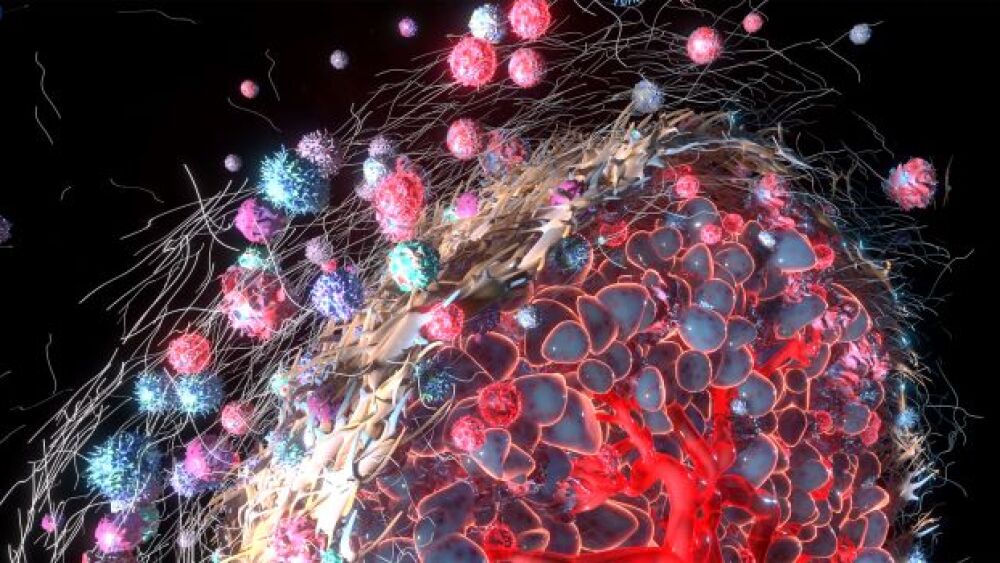An anti-CD70 antibody drug conjugate developed by Ambrx, Inc. has been administered to the first patient in a Phase I study in China. It marks the first ADC in active development that targets CD70.
Courtesy of Getty Images
An anti-CD70 antibody-drug conjugate developed by Ambrx, Inc. has been administered to the first patient in a Phase I study in China. It marks the first ADC in active development that targets CD70, according to the company.
The ADC, dubbed ARX305 and developed by the San Diego-based company, will be assessed in an early-stage trial by partner NovoCodex, a Chinese pharmaceutical company. NovoCodex initiated the Phase I trial in China as a potential treatment for solid tumors that overexpress the protein CD70.
CD70 is overexpressed in cancer indications, including renal cell carcinoma, multiple myeloma, non-Hodgkin’s lymphoma and acute myeloid leukemia. ARX305 is designed to kill overexpressed CD70 in a tumor and improve immune suppression in the tumor microenvironment.
The dosing of the first patient is a strategic benchmark for the company, Dan O’Connor, CEO, told BioSpace.
ARX305 is the second ADC developed by Ambrx to enter the clinic under the guidance of NovoCodex. Pointing to the broad possibilities in oncology with the antiCD70 ADC, O’Connor said the findings from the Chinese study will provide Ambrx the ability to leverage data generated by NovoCodex when it begins its own clinical program next year.
“It was a smart Phase I collaboration for the company,” he said. “Essentially, NovoCodex is paying for our study up to a certain point.”
Ambrx and NovoCodex first partnered on the development of the antiCD70 ADC in 2019. Under financial terms of the agreement, the Chinese biotech provided an undisclosed upfront payment, as well as $4 million in milestone payments. NovoCodex is responsible for funding global development of ARX305 through the end of Phase I.
Ambrx received the green light from the FDA earlier this year to begin its own studies in ARX305, following the filing of an Investigational New Drug application for ARX305.
The first study by Ambrx with ARX305, a dose-escalation and expansion study, will be in adult patients with renal cell carcinoma who are resistant or refractory to prior standard therapies.
Beyond RCC, there are many opportunities in hematological and solid tumors as well, O’Connor said.
Change at the Top
For Ambrx, this latest news comes hard on the heels of a restructuring that ultimately led to O’Connor joining the company as CEO.
Earlier this year, longtime Ambrx CEO Feng Tian abruptly departed the company. Kate Hermans, who had joined the company’s board of directors earlier this year, took over as interim CEO until O’Connor came on board earlier in November.
Although he has only been in the role of CEO for a week, O’Connor said there is significant opportunity for Ambrx to partner its ADC technology and developmental programs with larger pharma companies.
The company has some preclinical and developmental programs that offer “meaty opportunity” for collaborators, he said.
In October, prior to O’Connor’s joining the company, Ambrx initiated a restructuring, eliminating 15% of its staff and focused the company’s resources on the development of ARX517, an ADC that targets the prostate-specific membrane antigen (PSMA) expressed on prostate cancer cells.
ARX517 has the potential to be the first ADC that specifically targets PSMA, according to Ambrx. In 2021, the company began a Phase Ia study with patients who have PSMA-expressing tumors.
Beyond ARX305, Ambrx and NovoCodex are also collaborating on development of ARX788, a potential treatment for HER2-positive breast and gastric cancers.
In 2021, Ambrx announced positive Phase I data in HER2-positive gastric cancer. Data from the Phase I study showed an overall response rate of 44%. The drug candidate is now in a Phase II/III study for HER2+ advanced gastric or gastroesophageal junction adenocarcinoma.
ARX788 has received Fast Track designation from the FDA for HER2+ metastatic breast cancer and has also received Orphan Drug designation in gastric cancer.





